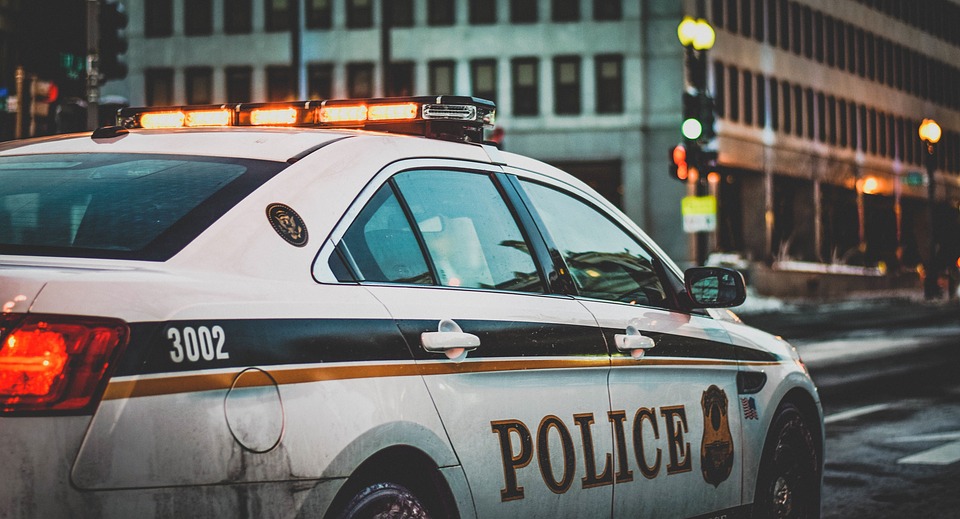Experts attribute the increase to the uprising of white supremacy amid the Trump era
According to a new report from the California attorney general, reported hate crimes across the state have increased for the third year in a row, jumping by 17 percent in 2017.
The 2017 California Criminal Justice Data Report from Attorney General Xavier Becerra’s office found that there were 1,093 reported hate crimes in California last year compared to the 982 in 2016. Records show that hate crimes have increased every year since 2014, and that there was a 44 percent jump since then.
The FBI defines a hate crime as “a traditional offense like murder, arson or vandalism with an added element of bias” and that bias could be based on “race, religion, disability, sexual orientation, ethnicity, gender or gender identity.”
More than half of the reported hate crimes in California involved racism, but crimes against victims based on sexual orientation and religion have also suddenly increased.
Anti-Asian crimes comprise of only 3.4 percent of the hate crimes reported last year — crimes targeting blacks and Latinos were 27.6 percent and 11.5 percent, respectively. But anti-Asian sentiments have been exemplified more and more in the form of harassment, with many Asian Americans posting stories on social media about people telling them to “go back to your country.”
Experts have correlated the sudden uptick of hate crimes with the disconcerting rhetoric toward minorities by President Donald Trump and the nationwide resurgence of white supremacist groups after Trump’s election.
“The current Administration’s anti-immigrant, anti-China, and anti-Muslim rhetoric have certainly affected our Asian American and Pacific Islander communities,” civil rights and legal organization Asian Americans Advancing Justice – Los Angeles said in a statement sent to the Asian Journal. “Through our hate tracker, we have received several reports of AAPIs being told to ‘go back to China’ or who have been verbally harassed with racial slurs.”
Filipinos have been among the many targets of this harassment. Last month, the Asian Journal reported that a Bay Area Filipino and Mexican-American family was chided by an American woman at the grocery story who told them to “go back to your country” because [immigrants] “steal our food, steal our money, steal our jobs.”
Last year, Filipina-American Quiggle Ignacio, a registered nurse, was sitting in her car at the Eagle Rock Plaza in Los Angeles when a white couple hit her car with a shopping cart.
When Ignacio looked at the couple, the white woman reportedly yelled at her, “what are you looking at, b*tch? F*ck you, you chinky Asian!”
Ignacio then confronted the couple, asking why she was yelling at them, to which the man called her “stupid” and told her to “go back to your country,” according to a video Ignacio posted on Facebook. The woman then reportedly hit Ignacio multiple times on her face, which caused facial bruising, as seen in photos Ignacio posted. (Ignacio reported the crime to the police.)
“I’m a good person and a hard worker, follow the law and take care of my patients like my own. There’s no race or color that would change my service to them. I take care of them just like how I would take care of my family,” said Ignacio, according to NextShark. “What did I do to get hit in the face? I didn’t do anything wrong or bad to them. I was the victim but then I got hurt and I got discriminated. At this point, I really pray that people stop being racist and stop hurting other people.”
When Trump first announced his presidential campaign in 2015, he touted his plans to build a border wall along the U.S.-Mexico border with a callous message that brought his campaign early criticism for generalizing Mexican and Central American immigrants as “criminals” and “rapists.”
“When Mexico sends its people, they’re not sending their best… They’re sending people that have lots of problems, and they’re bringing those problems with us. They’re bringing drugs. They’re bringing crime. They’re rapists. And some, I assume, are good people,” Trump said.
That message set the tone for his campaign — and, eventually, presidential — rhetoric and political outlook. In August 2017, a group of white supremacists rallied in Charlottesville, Va. and spewed racist, nativist messages, which prompted counter protestors, one of whom was killed by a white supremacist who drove a car into the crowd.
Trump hesitated when condemning the act, saying that there was violence “on both sides” and that there were some “very fine people” within the white supremacists, a comment that received wide criticism from Americans of all political leanings.
While the president has walked back on his more controversial statements which were perceived as racist, the perceived correlation between the sheer volume of hate crimes and harassment towards minorities in the last three years and the rise of Trump cannot be discounted.
“I think people, particularly with bigots, they are now more emboldened and we are seeing this across a spectrum of data points,” Brian Levin, director of the Center for the Study of Hate and Extremism at Cal State San Bernardino told the Los Angeles Times. “If you look at bigoted social media posts, if you look at the number of white nationalist rallies across the nation and in California.” (Klarize Medenilla/AJPress)








